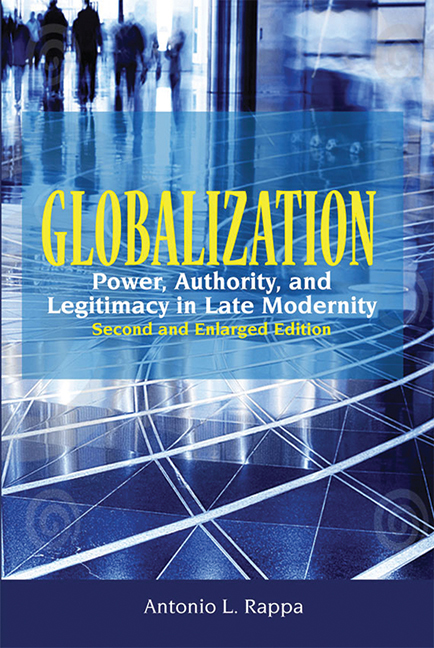Summary
Culture, believed the Greek writer Herodotus, was a means of understanding the world. His globe held the tragic prospect of unknowable and inestimable space. The modern political theorist, J. Peter Euben, argued that Greek tragedy represented a powerful cultural context for classical thought as it anticipates modern struggles with power, authority, legitimacy, freedom, justice, and tolerance. The world that Euben describes seems far less spacious and more catastrophic than the one described by Herodotus. Euben's globe is a “culture” of money and terror. But whether or not it anticipates modern struggles from the basis of the classical lifestyle of the Greeks is in doubt. This is because the catastrophic nature of the world in late modernity is markedly different. There is a greater sense of disaffection, alienation, and anomie in the Age of Globalization than in the Age of Antiquity. The twentieth and twenty-first centuries in particular, have been about the mismanagement of war and global terror. If the twentieth century was characterized by a clash of political ideologies, then the twenty-first century manifests itself in neoliberal capitalism and the challenges of globalization. It is also the age of terror where the adage “one man's terrorist is another man's freedom fighter” bears itself onto the template of a commoditized world complicated by competition, technological convergence, uneven development, greed, poverty, culture, money and terror.
The seeds of such disaffection lie in the period of decolonization and rising nationalism of the past twentieth century. American Republicans tend to miss the point that the terrorists are made when innocent families are bombed. But the bombing of other cultures did not begin with Iraq. In our late modern era, the American bombing of Hiroshima City and Nagasaki City were the first illustrations of the efficacy of weapons of mass destruction (WMD). That was the only way, they said, to stop the Japanese war from advancing. Innocent blood had to be spilled. The Japanese Imperial Army and the Japanese Kempetai committed many atrocities all over the Pacific, in Southeast Asia, and China. Iris Chang describes the six weeks of horror in the Rape of Nanking (1997) as the soldiers raped and murdered close to 300,000 Chinese women, men and children — mostly civilians — in 1937. When America dropped the atomic bomb on Japan, close to 140,000 people were killed instantaneously or died from the side effects of the bomb eventually.
- Type
- Chapter
- Information
- GlobalizationPower, Authority, and Legitimacy in Late Modernity (Second and Enlarged Edition), pp. 1 - 34Publisher: ISEAS–Yusof Ishak InstitutePrint publication year: 2011

